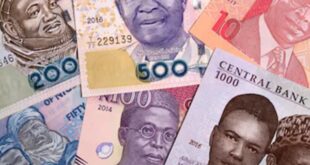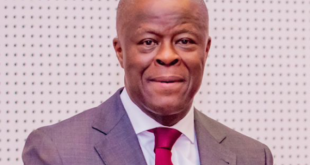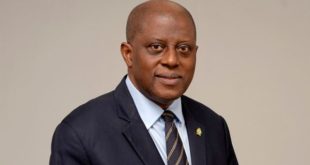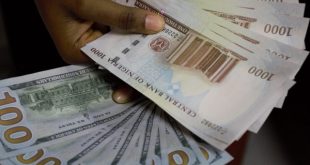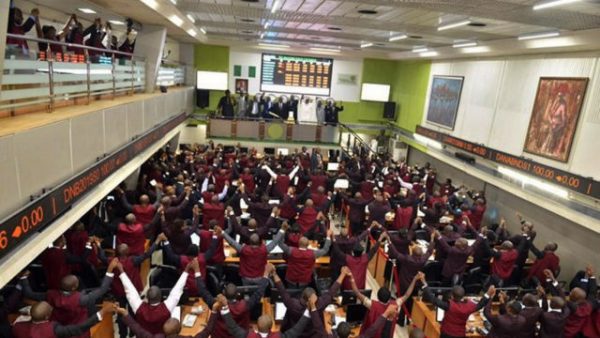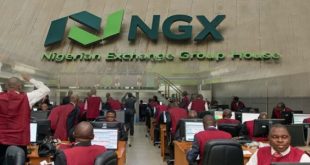Nigeria’s inflation rate increased for the fourth consecutive month this year to 22.22 per cent in April from the 22.04 per cent recorded in March.
This is according to the Commodity Price Index report published on Monday by the National Bureau of Statistics.

The April 2023 inflation rate showed an increase of 0.18 percentage points when compared to the March 2023 headline inflation rate.
Similarly, on a year-on-year basis, the headline inflation rate was 5.40 percentage points higher compared to the rate recorded in April 2022, which was 16.82 per cent.

According to the NBS, the percentage change in the average Commodity Price Index for the twelve months ending April 2023 over the average of the CPI for the previous twelve months was 20.82 per cent, showing a 4.37 per cent increase compared to the 16.45 per cent recorded in April 2022.
The data also showed that key sectors that drove up inflation figures in June were food and alcoholic beverages, housing, water, electricity, gas and other fuel, clothing and footwear, and housing.
The upward surge sees inflation increase for the fourth consecutive month after slowing to 21.34 per cent in December 2022.
The upward trend began with a spike to 21.82 in January 2023. Another increase to 21.91 followed in February while March saw inflation cross the 22 per cent mark to 22.04 percent.
The figures also mean that the President, Major Gen Muhammadu Buhari, will be leaving office with as the president leaving behind the highest inflation rate since the return of democracy in 1999.
Meanwhile, the International Monetary Fund had in a recent report faulted the NBS CPI calculation metric. The global lender said the weights used by Nigeria’s National Bureau of Statistics to calculate the monthly consumer price index “are severely outdated.”
The CPI is used to measure inflation by tracking the changes over time in the prices paid by consumers for a basket of goods and services.
The basket’s composition and weighting are usually based on surveys of household or family expenditure habits.
In its ‘Article IV consultation report on Nigeria,’ the IMF argued that the NBS inflation index does not provide a true representation of Nigeria’s current expenditure patterns.
It warned that outdated weights can lead to bias in the inflation index.
In the same vein, a renowned professor of economics at John Hopkins University, Steve Hanke, had described the statistics body’s calculation permutation of the country’s inflation as erroneous.
Following a publication of Nigeria’s March inflation figures by the National Bureau of Statistics, the economist faulted the NBS, noting that Nigeria’s inflation was at least double of what was being reported.
Last year, the World Bank warned that Nigeria’s accelerated inflation growth had eroded the N30,000 minimum wage by 55 percent and widened the poverty net with an estimated five million people in 2022.
The lender raised the alarm in Abuja at the launch of the Nigeria Development Update for December 2022, and the Country Economic Memorandum.
“The cumulative inflation between 2019 and 2022 was 55 percent, households’ purchasing power has slumped and the real minimum wage in 2022 after discounting for inflation is N19,355 while in dollar value is $26 after discounting for both inflation and exchange rate depreciation,” chief economist at World Bank Nigeria, Alex Sienaert said.
He said the minimum wage, which was $82 in 2019, had dropped to $26.
He added that over the past decade, macroeconomic stability had steadily deteriorated, eroding growth potential and hindering poverty reduction goal.
Speaking with media, the Deputy-President of the Lagos Chamber of Commerce and Industry, Gabriel Idahosa, said the outgoing government had failed to tackle inflation.
He, however, expressed optimism that if the incoming government gets its economic policies right, the country may begin to see a slowdown in inflation rate by the third quarter of the year.
Idahosa said, “It will get better. It is a matter of time frame. If you are looking at between now and June when the present government will hand over, we are not likely to see any change. But after the government changes, by the third quarter we may begin to see some changes.”
Also speaking exclusively with media source, the Director-General of the Manufacturers Association of Nigeria, Segun Ajayi-Kadir, cited rising inflation as one of the major challenges that has bedevilled the sector.
He said, “Manufacturers are constantly beset by acute shortage of forex for importation of raw materials and machines that are not produced in the country; dearth and high cost of funds; high inflation; multiple taxes and regulation; inadequate power supply and bad roads; effect of limited and inadequate port facilities and high charges; unfavourable monetary and tariff policies, smuggling, counterfeiting and cloning activities. These challenges still interplay in the operating environment and are not abating.”
On his part, the Vice President of the Nigerian Association of Small Scale Industrialists, Segun Kuti-George, blamed over-importation of foreign goods as the primary driver of inflation in the country.
 MMS PLUS NG – Maritime, Aviation, Business, Oil and Gas News Online Newspaper with coverage in Maritime, Oil and Gas, Aviation, Power and Energy as well as Financial News
MMS PLUS NG – Maritime, Aviation, Business, Oil and Gas News Online Newspaper with coverage in Maritime, Oil and Gas, Aviation, Power and Energy as well as Financial News




